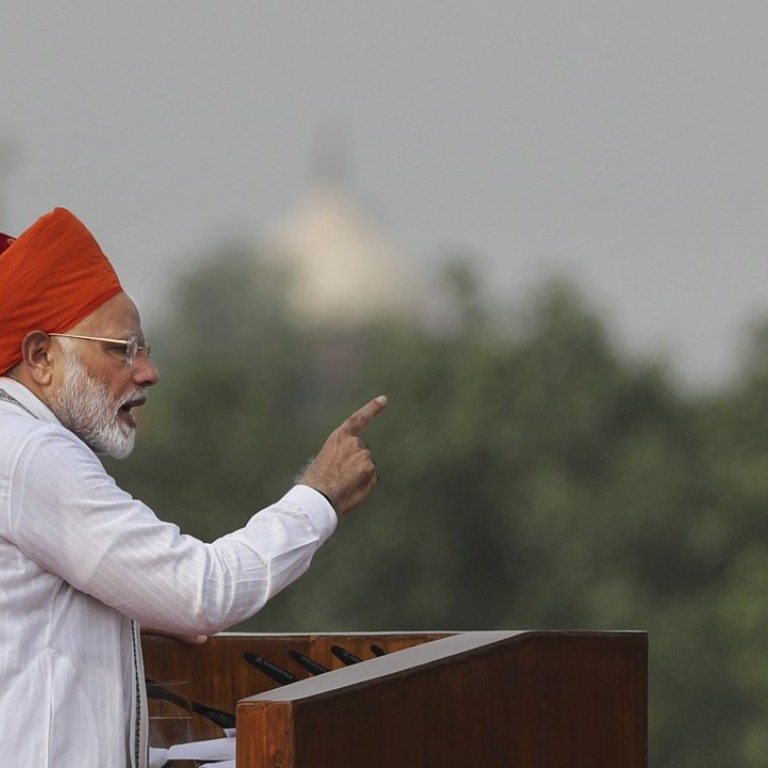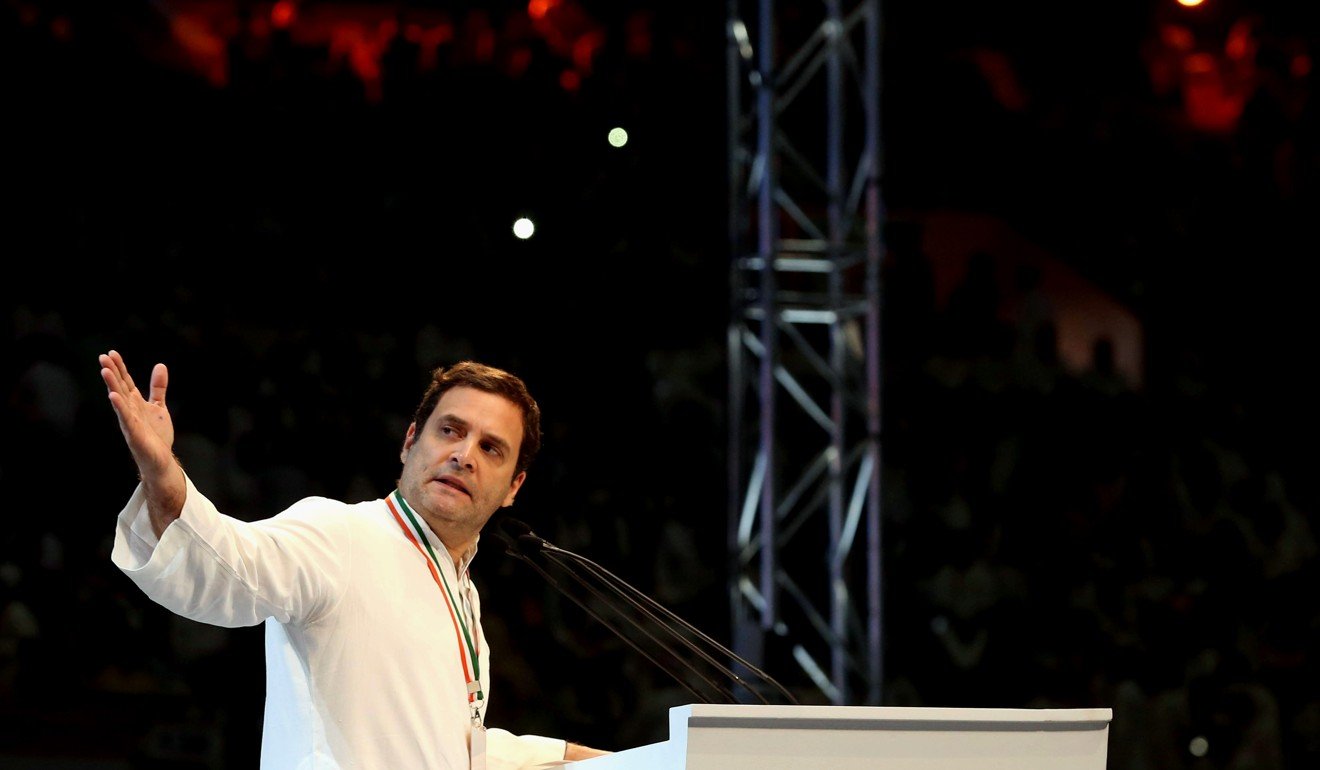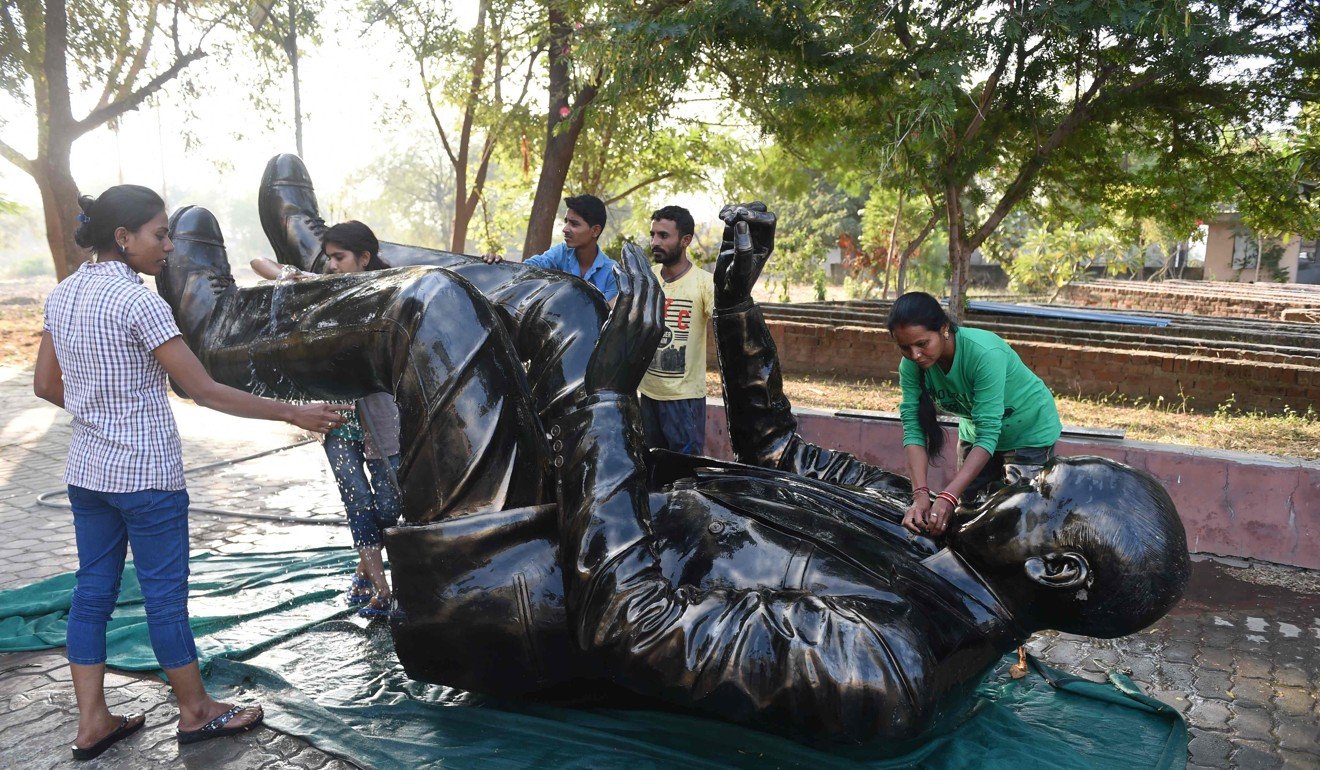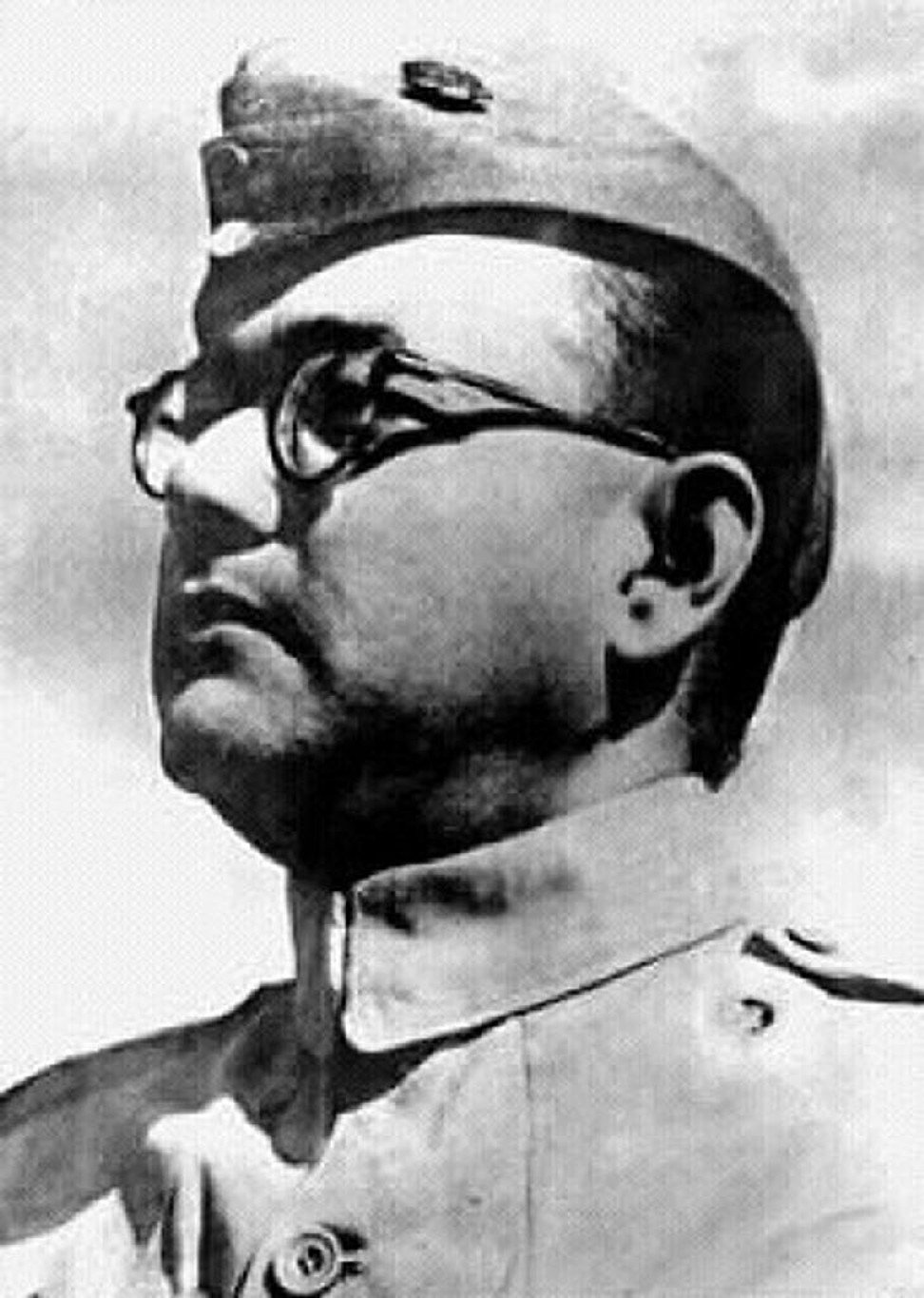
It’s Modi and Bose vs Gandhi and Nehru in India’s battle of legacies
- The Indian Prime Minister has officially recognised the efforts of war hero Subhas Chandra Bose. Why is this so controversial? Because it’s seen as a bid by Modi to appropriate the legacies of India’s freedom movement leaders
Indian Prime Ministers usually raise the national flag on Delhi’s Red Fort just once a year – on August 15, the country’s independence day – but Narendra Modi made an exception in 2018.
On 21 October, the Hindu nationalist leader raised the saffron, white and green tricolour on the Red Fort for the second time this year, to mark the 75th anniversary of the formation of a national government in exile by independence war hero Subhas Chandra Bose, popularly called “Netaji”, or leader.
Bose turned the Indian National Army (INA) from prisoners of war in Japanese captivity in Southeast Asia into a force he led into battle against India’s British masters in the closing stages of the second world war.
He then mysteriously disappeared after a reported plane crash in Taipei following Japan’s defeat.
The British provoked a countrywide revolt in 1945 as they tried some INA officers for sedition, only for the charges to be dropped in a bid to cool things down.
Historians say the “ghost of Bose” haunted the British because they could no longer count on the loyalty of their Indian soldiers, which observers say influenced Britain’s hasty exit from the subcontinent in 1947.
“It was Bose and not Gandhi who got us our freedom by striking the most decisive blow against the British by exposing that Indian troops were no longer loyal to them. This was the one single factor that influenced their withdrawal from India,” says retired major-general G.D. Bakshi in a recent book on the last years of British India. “ Bose lost the battle on the India-Myanmar frontier but won the war for India’s freedom.”
Bose’s effort has so far been seen by official post-colonial histories as a peripheral effort, with much of the credit for India’s freedom showered on the non-violent struggle led by Mahatma Gandhi, the country’s first prime minister Jawaharlal Nehru, and their party, the Indian National Congress.
Bose had twice been national president of the Congress before he quit in 1939 over his differences with Gandhi and those who stood for his non-violent methods.
Modi and his Hindu nationalist Bharatiya Janata Party (BJP), which sees the Congress – which has ruled India for much of the country’s seven decades after independence – as its main challenger, may have had political considerations in giving official recognition to Bose’s INA movement.
After unfurling the national flag at the commemoration ceremony on Oct 21, Modi took a clear jab at the Congress for “undermining the legacy of Netaji Subhas Chandra Bose … to promote just one family”.
He obviously meant the Nehru-Gandhi family, harping on differences between Bose and Nehru. Nehru’s daughter Indira Gandhi and her son Rajiv Gandhi ruled India as prime ministers; Rajiv’s son Rahul Gandhi, now Congress president and a bitter opponent of Modi, has accused the Indian prime minister of being involved in defence scams and has criticised the country’s disastrous demonetisation move in the lead-up to national elections next year.
The Congress was quick to hit back, saying Bose may have differed with Nehru but the two leaders never lacked mutual respect, and reminding the BJP that the war hero named his INA brigades after Gandhi and Nehru.

“The BJP and its ideological parent RSS [Rashtriya Swayamsevak Sangh] is trying to appropriate the Bose legacy because they have made no contribution to our freedom struggle. Bose was a Congressman and his difference with their leaders was over methods, not ideology,” said Congress spokesperson Abhishek Manu Singhvi.
Congress leaders also took to social media to highlight how the RSS and other Hindu nationalist groups had totally supported the British war effort when Bose’s INA was fighting them on the India-Myanmar frontier.
Many media commentators and angry citizens who oppose the divisive politics of the Hindu nationalists also attacked Modi, who had put on the INA cap while unfurling the flag at Red Fort.
“Subhas Bose was Netaji the leader, Modi is abhinetaji – the actor,” said a tweet by a Modi-baiter.
In addition, Modi’s government has released many classified files on Bose after it came to power in a move that embarrassed the Congress.
“Until 1977, the Congress government did not even put up a portrait of Subhas Bose in the Indian parliament. They clearly stonewalled enquiries into Bose’s mysterious disappearance. Bose never got due recognition for all his supreme sacrifice for his country’s freedom,” says Anuj Dhar, an author of several books on Bose’s mysterious disappearance in 1945.

The Congress denies the charge and says the BJP is seeking to appropriate the legacy of freedom movement leaders such as Bose, India’s first home minister Sardar Patel (called “Iron Man” for his tough handling of national security issues) and the country’s lower-caste messiah B.R. Ambedkar.
“They are building statues of these leaders and observing their anniversaries but the BJP and RSS forgets that their divisive, sectarian, religion-driven ideology was opposed by Bose, Patel and Ambedkar,” says Congress leader Bobbeeta Sharma.
She says the BJP’s “sole aim is to target the Nehru-Gandhi family”.
The left-wing party that Bose formed after leaving the Congress has also hit out at the BJP for trying to appropriate the legacy of their leader.
“The BJP and RSS are an ideological antithesis to what Bose firmly believed all his life, in a united India where religion, caste and creed were all to be supplanted by one overarching inclusive secular national identity,” said Debabrata Biswas, general secretary of the Forward Bloc, which Bose founded in 1939.
But some in the Bose family welcomed Modi’s move of officially recognising the INA movement.
“This was long overdue but good that it has happened now. Bose’s ideology is the only one that can save India from disintegration,” said Chandra Bose – the grand-nephew of the independence war hero – who is now in the BJP.


